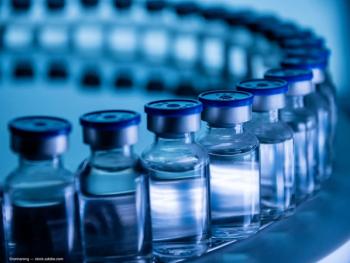
Study finds ranibizumab biosimilar equivalent in safety, efficacy for the treatment of wet AMD
The authors noted that the proportion of patients losing fewer than 15 letters from the baseline BCVA score in the study eye was comparable between the ranibizumab and biosimilar treatment groups.
Indian researchers compared a biosimilar of ranibizumab (Lupin) with ranibizumab (Lucentis, Genentech) and reported the therapeutic equivalence, safety, and favorable immunogenicity profile of the biosimilar formulation in patients with age-related macular degeneration (AMD).
Ramandeep Singh, MD, lead author from the Department of Ophthalmology, Postgraduate Institute of Medical Education and Research, Chandigarh, India, reported the findings.1
Singh and colleagues conducted a prospective, double-blind, 19-center phase-III study that included 202 patients with neovascular AMD. The patients were randomized (1:1) to receive an intravitreal injection of either the biosimilar formulation of ranibizumab or Lucentis 0.5 mg once monthly for 3 months.
The primary endpoint was the percentage of patients who lost fewer than 15 letters of best-corrected visual acuity (BCVA) compared with baseline The investigators assessed the adverse events, the ophthalmic examination and systemic examinations, and vital parameters. The immunogenicity assessment was based on evaluation of anti-drug antibodies, the investigators described.
Comparison of the biosimilar and Lucentis
Of the 202 patients, 174 patients (86.14%) completed the study; those patients were evenly divided between the 2 groups.
“The proportion of patients losing fewer than 15 letters from the baseline BCVA score in the study eye was comparable between the two groups,” the authors reported.
Analysis of the 2 groups showed that the 2 drugs were comparable in the percentages of patients who lost fewer than 15 letters of BCVA and the numbers of adverse events.
The numbers of patients who lost fewer than 15 letters, the investigators explained, were within the predefined equivalence margin (intention-to-treat population, 1.0%; 95% confidence interval [CI], -3.3% to 5.4% and per protocol population: 1.2%; 95% CI, -3.2% to 6.4%).
Eleven patients (10.89%) in the biosimilar group and 19 (18.81%) patients in the Lucentis group had at least one treatment-emergent adverse event.
The immunogenicity incidence, i.e., the proportion of patients with positive anti-drug antibodies, was numerically lower in the biosimilar group (4.95%) than in the Lucentis group (12.87%).
The investigators concluded that biosimilar ranibizumab showed therapeutic equivalence, desirable safety, and favorable immunogenicity profile compared with Lucentis.
Reference
1. Singh R, Chauhan R, Saxena A, et al. A prospective, randomized, parallel group, double blind, multicenter study to compare the efficacy, safety and immunogenicity of Lupin's Ranibizumab with Lucentis in patients with neovascular age-related macular degeneration. Indian J Ophthalmol. 2022;70(8):3008-3014. doi: 10.4103/ijo.IJO_2118_21
Newsletter
Keep your retina practice on the forefront—subscribe for expert analysis and emerging trends in retinal disease management.

































